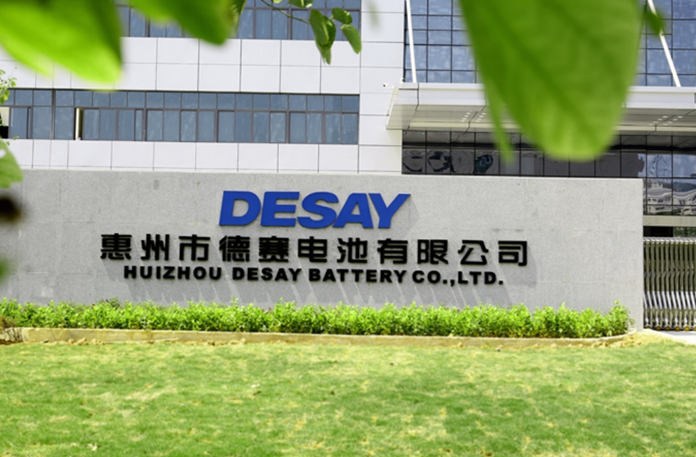
One of Apple's Chinese suppliers is involved in a "forced labor" scandal.
Recently, a man surnamed Chen posted a video on the Internet saying that when he clocked out of work at a Desai Battery factory according to the 8-hour workday system, he was told that he had not completed 10 hours on duty and his attendance would be erased, and that his wages would be deducted for 3 days.
In addition, the man also revealed that the factory requires mandatory overtime on Sundays, but can not clock in. "It's obvious that labor laws are being circumvented and that overtime pay for temporary workers is owed."
After the video was released, it quickly circulated on Chinese social media platforms, sparking many discussions on the issue of overtime at Desai Battery.
Many Chinese netizens went to Apple CEO Tim Cook's Weibo account, leaving messages reflecting "forced labor at Desay Battery" and hoping to "fix the supply chain".
Some of them even mentioned Desay Battery's "forced labor" in Cook's latest X post, even though a large number of Chinese users can't access X.
Desai Battery is located in Huizhou, Guangdong Province, founded in 2002, mainly focuses on the production and processing of various types of batteries as its core business. It is a supplier of battery parts for a series of well-known cell phone brands such as Apple, Huawei and OPPO.
Public information shows that the parent company of Desai Battery is Shenzhen Desai Battery Technology Co., Ltd., whose major shareholder is a local state-owned enterprise - Huizhou Innovation Investment Co.
It is well known that Apple has succeeded in having a leading position in the global consumer electronics industry through efficient supply chain management and continuous innovation.
The company has also been adopting a strict supplier screening and management mechanism to ensure the stability and reliability of its supply chain.
Therefore, since Desay Battery, which cut its way into Apple's supply chain in 2008, was exposed to a labor scandal, many Chinese consumers hoped that Cook would respond in a timely manner and could not allow labor exploitation to take place.
Regarding the said scandal, Desay Battery responded on Wednesday afternoon that through a comprehensive and in-depth investigation, it found that there were oversights in the management of the Huinan plant to protect the rights and interests of employees.
"In response to these situations, our company has taken immediate measures to actively communicate with employees, strengthen the management of labor companies, and has instructed labor companies to initiate payment of wages to employees who have had their wages unreasonably deducted or are owed to them," Desai Battery said.
In a statement, Desay Battery emphasized that it strictly implements the standard working hour system of 8 hours per day and 40 hours per week, and overtime work is paid in accordance with legal standards, and emphasized the principle of "overtime work is voluntary, and refusal to work overtime is not penalized".
When the Desai scandal came to light, Chinese companies including DJI, Haier and Midea began to "fight against involution" and resisted ineffective overtime work.
For example, Haier requires all departments (including R&D, marketing, etc.) to take a break on weekends, and Midea requires that no one be allowed to work overtime at 6:20 pm.
Previously, the Chinese government has explicitly proposed to "comprehensively rectify involutional competition" and regulate the behavior of local governments and enterprises.
At the same time, the European Union's Forced Labor Regulation considers excessive overtime as a risk of violation.
Therefore, in order to cope with international compliance and policy pressure, Haier, Midea and other Chinese enterprises must take "anti-involution" measures.





